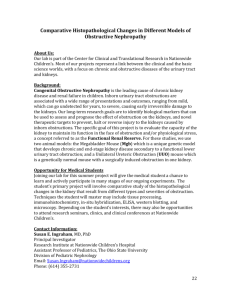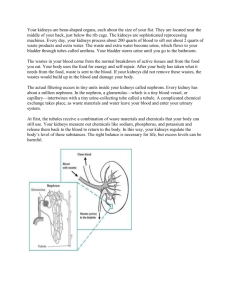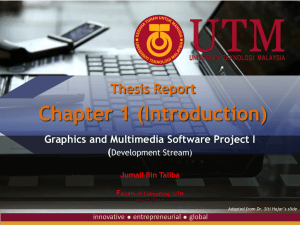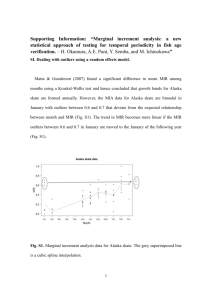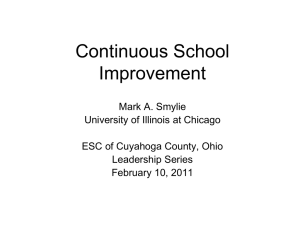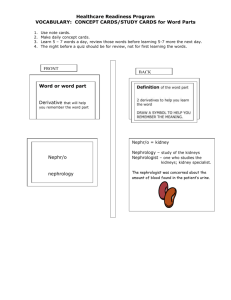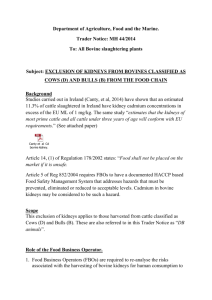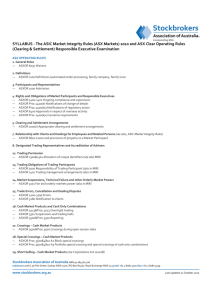Medical Student cell Project
advertisement
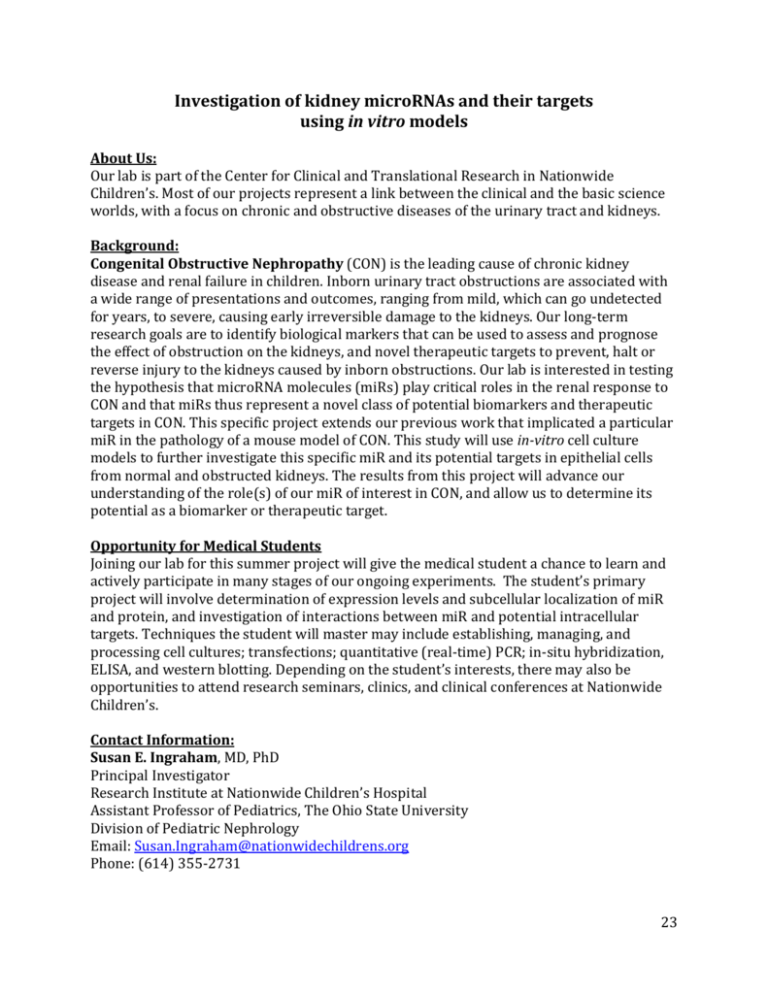
Investigation of kidney microRNAs and their targets using in vitro models About Us: Our lab is part of the Center for Clinical and Translational Research in Nationwide Children’s. Most of our projects represent a link between the clinical and the basic science worlds, with a focus on chronic and obstructive diseases of the urinary tract and kidneys. Background: Congenital Obstructive Nephropathy (CON) is the leading cause of chronic kidney disease and renal failure in children. Inborn urinary tract obstructions are associated with a wide range of presentations and outcomes, ranging from mild, which can go undetected for years, to severe, causing early irreversible damage to the kidneys. Our long-term research goals are to identify biological markers that can be used to assess and prognose the effect of obstruction on the kidneys, and novel therapeutic targets to prevent, halt or reverse injury to the kidneys caused by inborn obstructions. Our lab is interested in testing the hypothesis that microRNA molecules (miRs) play critical roles in the renal response to CON and that miRs thus represent a novel class of potential biomarkers and therapeutic targets in CON. This specific project extends our previous work that implicated a particular miR in the pathology of a mouse model of CON. This study will use in-vitro cell culture models to further investigate this specific miR and its potential targets in epithelial cells from normal and obstructed kidneys. The results from this project will advance our understanding of the role(s) of our miR of interest in CON, and allow us to determine its potential as a biomarker or therapeutic target. Opportunity for Medical Students Joining our lab for this summer project will give the medical student a chance to learn and actively participate in many stages of our ongoing experiments. The student’s primary project will involve determination of expression levels and subcellular localization of miR and protein, and investigation of interactions between miR and potential intracellular targets. Techniques the student will master may include establishing, managing, and processing cell cultures; transfections; quantitative (real-time) PCR; in-situ hybridization, ELISA, and western blotting. Depending on the student’s interests, there may also be opportunities to attend research seminars, clinics, and clinical conferences at Nationwide Children’s. Contact Information: Susan E. Ingraham, MD, PhD Principal Investigator Research Institute at Nationwide Children’s Hospital Assistant Professor of Pediatrics, The Ohio State University Division of Pediatric Nephrology Email: Susan.Ingraham@nationwidechildrens.org Phone: (614) 355-2731 23
